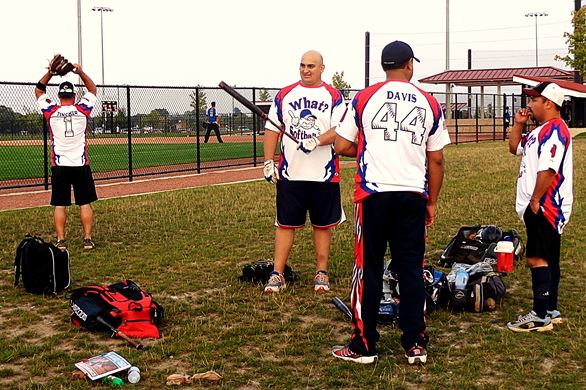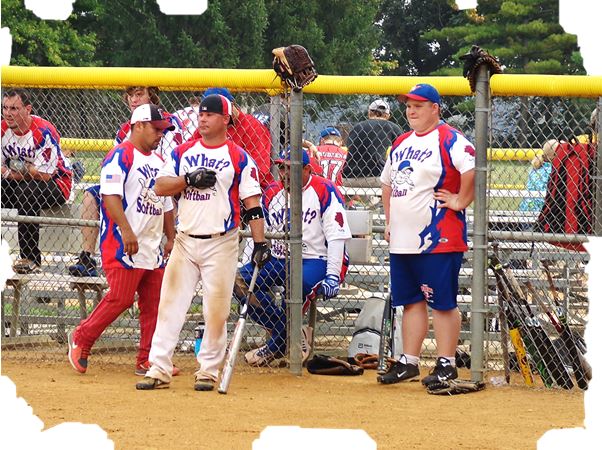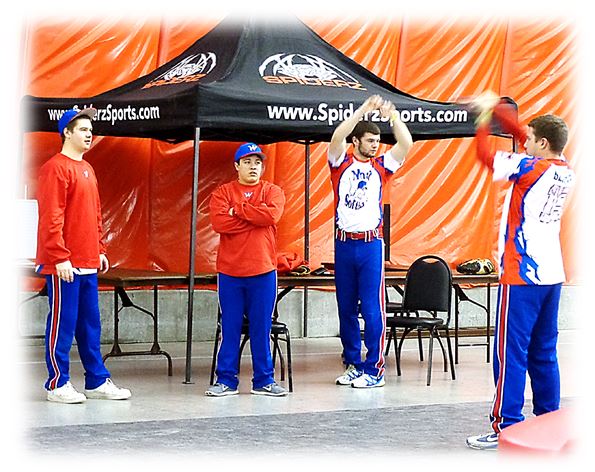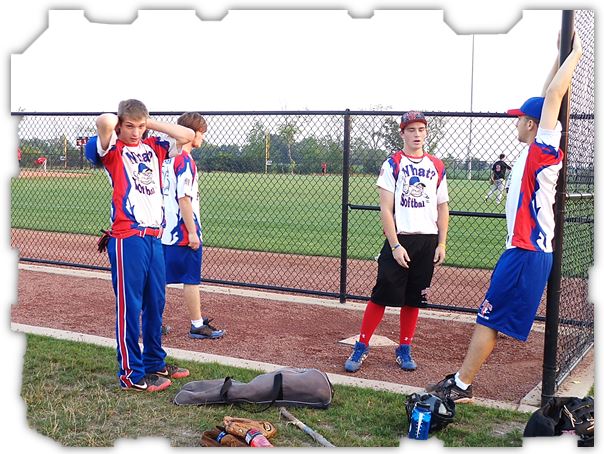HISTORY 2013
Building up to the 2013 Championship run, for a Team that went from fourth place in 2012 to an All-City Championship Series in 2013 was the most striking part of it, was how quickly it all came together.
But that was just the beginning. What followed was an amazing run toward their first All-City championship showing in team history and everyone's attention nationwide was on the 2013 WHAT? Men’s Softball Club. The team, led by Coach Jerry Vasquez, stepped up to the plate and captured 5 League Night Championships. Three during the Summer leagues and two more during Fall League.
So as the wins started to pile up and the appreciation for the club's style of play grew by the weeks, the questions about 'Average to First place' became more difficult to answer. Yes, the record shows a 109 Win Season as several key new players gathered during Spring season to join the trusted holdovers, though that the 2012’ season was hardly ever even a thought.
There was a new left fielder in rookie sensation Austin Ward who created a winning atmosphere from the first day. With free-agent pickups – from infielders Matt Tincher, Bert Ramirez, and James Creekmore and returning from last season were Ralph Lozano, Joe Yonke, Clark Collins and Ray Quinones. It wasn't as if winning was unfamiliar to them. They just needed the right supporting cast to get back to it.
Ralph Lozano had the best season of his career, hitting .629 / .657 / 1.241, with 56 homers, 159 runs, and 202 RBI. He chose the perfect time to do it also, as he’ll likely be name MVP among other awards. Another bright spot on offense for the WHAT? Softball was first baseman Clark Collins, who hit the 20-20 mark when he launched 25 long balls and collected 20 base on balls.
The WHAT? older squad aren't going to win the All-City Tournament Series and they're not likely to earn a championship spot if you believe the multitude of statistical projections that try to predict this sort of thing before the season gets started. They're a solid team, built to chase a .800 record, but there simply isn't enough talent on the roster - specifically at the plate or on the field - to make it work.
That said, analyzing a season on paper before or after games get a little tricky. There are wide error bars. Saying the WHAT? Squad are a true talent 109 win team really means they're going to end up somewhere between 70 and 90 wins.
Everything has to go perfectly for the WHAT? to win a League Night and almost everything needs to go right for them to win the All-City tournament.
It all has to go right for the WHAT? Older Squad to win, and the WHAT? have to win or all will have been for naught.
The WHAT? Older squad loses in Gm 6 of the semi-finals, to the Dirty Tacos club 16 – 13 final score. Eventually taking 3rd place overall in the All-City tournament playoffs.
It doesn't really matter how you prevent runs, but the WHAT? Older Squad probably missed an opportunity to improve their team due to overconfidence in the ability of their veterans. They had a massively successful defense, which made everyone look good. Most of those players are still in place, so we should expect a similar style gap, but understanding that was responsible for preventing runs is central to understanding the WHAT? and how they can work toward a championship.
The WHAT? Younger Squad succeeded in large part because they zigged while other softball clubs zagged. There's no way around it. You can't walk back the expectations and say that "playing meaningful softball in August" is enough. The WHAT? Younger Squad pushed their chips into the center of the table before the 2013 season and made it clear they wanted to be competitive.
Despite all of that, the Lower Squad rallied in the second half, thanks in large part to their ... drive? Yes, a team that was largely built on youth and inexperienced – but playing in an adult leagues will do that -- made inroads during the second half with their passion.
There's sufficient reason for hope after a strong 2013 summer that saw a squad that play a lot better thanks in part to its
offensive resurgence, buoyed by the bats of Jake Economos, Thomas Wolfer and Matt Berliner, among others. Younger ball players who made their summer debut were infielders Evan Berliner, Jake Economos, Max Dowd and Nick Baron. Outfielders were Matt Berliner, Matt Boley and Kevin Keefe. Rookie outfielder Matt Boley, who played in his first Tournament on June 29th, 2013 at Plainwell, Michigan, was an All-Star when he was in the lineup, benefiting was left fielder Bradley Daniel and right center Mike Gould who had a monster season at the plate, well surpassing his career-best in HR and RBI totals.
What made the WHAT? Clubs great was the concurrent development and acquisition of multiple All-Star-level performers. Yes, Ralph Lozano, Thomas Wolfer, Joe Yonke, Clark Collins, and Austin Ward offered an impressive combination of high-contact hitting, as well as solid defense and baserunning prowess (albeit much less so for Lozano and Collins). But they were also simply good to very good players all around the same age who happened to become good at the same time. For a revenue-challenged team like the WHAT? Softball that won't pursue professional paid players, that is the key to making deep playoff runs.
So yes, a young, toolsy, ultra-speedy player like Thomas Wolfer could become a building block for the next winning team for WHAT? Softball.
But the same could be said for power-hitting first baseman Jake Economos and some of the young players coming up through the WHAT? system, some of whom could end up making an impact in the batting order as opposed to just substituting.
Build a better nucleus of talent than your competition, and you're likely to win. The types of players who populate that nucleus isn't as important. And it's not nearly as predictable.



